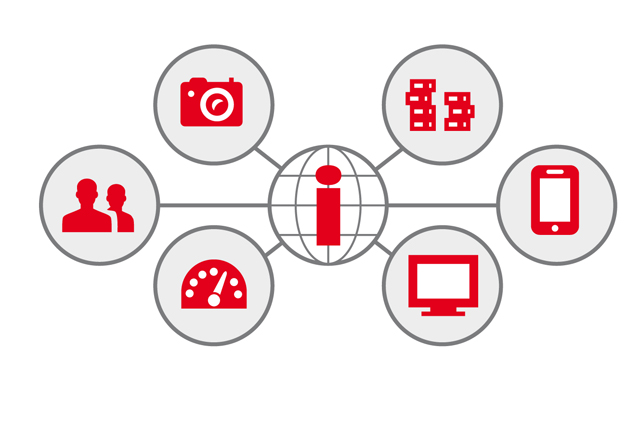Consider smart meters. EDF Energy is trialling a meter that monitors your electricity use minute by minute and sets a price based on demand. If you use off-peak power, you save money.
In the future, such meters might negotiate with your tumble dryer, telling it to slow down when there's a surge in demand elsewhere. You would pay less, and there would be less of a need for so many expensive power stations to be built.
Or consider car insurance: Aviva is running a small-scale pilot scheme where it places a black box in a consumers' car and monitors their mileage and driving patterns. Drive carefully on low-risk roads, and your premium will go down.
These are early examples of applications of what's being called the Internet of Things. When communication chips were expensive and network bandwidth was limited, only the most powerful computers could access the net. Now billions of mobile phones are online.
Basically, the Internet of Things gives rise to the question: 'What can happen when hundreds of billions of everyday objects can access the net and "talk" to each other?'
Real examples
That day isn't quite here. Much of the activity is still in research labs or pilots. Nonetheless, real examples are starting to go live and some companies are turning their whole business model on its head. Rolls-Royce, for example, no longer sells jet engines as such, but 'hours of power' instead, relying on the components within those engines to communicate back to it about how they're being used, how parts are wearing, and so on. It then schedules the appropriate servicing.
The question for you, then, is how this might change your mix of products and services? How might it change the way you promote and sell those products?
In a world where people's T-shirts can 'talk' to their washing machines, will we need different types of soap powder, each tightly tailored to just how that T-shirt is being worn each day?
Graham Oakes is a technology consultant. He can be contacted via www.grahamoakes.co.uk or graham@grahamoakes.co.uk. His book Project Reviews, Assurance and Governance is published by Gower.
WHAT ARE THE OPPORTUNITIES?
Create fresh market niches
When an object can tell us exactly how it's being used, we can tailor supporting products and services. 'Talking T-shirts' might not be a reality yet, but such innovations will create opportunities ranging from fresh accessories to dry-cleaning services to who knows what.
Target promotions more effectively
Likewise, when you know exactly what people are doing with an object and where they are, you can target messages to suit their circumstances.
Build long-term relationships
When objects can be monitored and managed remotely, the scope for long-term service relationships grows. You're no longer limited to a one-off sales transaction: you can provide all manner of ongoing support.
Reduce costs
In the case of smart meters, by setting up a conversation between objects, the power company can shift demand patterns in its favour.
This allows it to reduce costs and manage its operations more effectively, which will lead to higher profitability.


